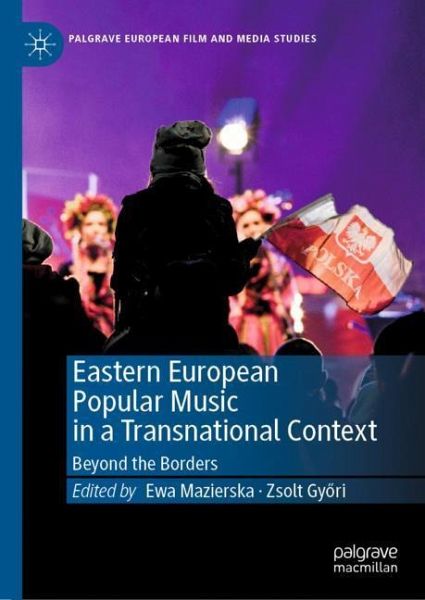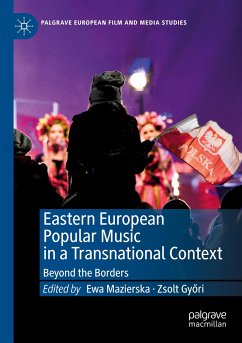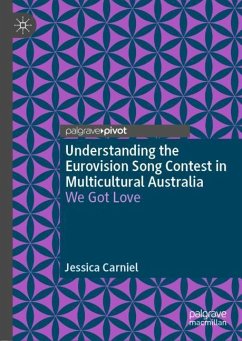
Eastern European Popular Music in a Transnational Context
Beyond the Borders
Herausgegeben: Mazierska, Ewa; Györi, Zsolt

PAYBACK Punkte
38 °P sammeln!
This volume examines the transnational character of popular music since the Cold War era to the present. Bringing together the cross-disciplinary research of native scholars, Eastern European Popular Music in a Transnational Context expands our understanding of the movement of physical music, musicians and genres through the Iron Curtain and within the region of Eastern Europe. With case studies ranging from Goran Bregovic, Czeslaw Niemen, the reception of Leonard Cohen in Poland, the Estonian punk scene to the Intervision Song Contest, the book discusses how the production and reception of po...
This volume examines the transnational character of popular music since the Cold War era to the present. Bringing together the cross-disciplinary research of native scholars, Eastern European Popular Music in a Transnational Context expands our understanding of the movement of physical music, musicians and genres through the Iron Curtain and within the region of Eastern Europe. With case studies ranging from Goran Bregovic, Czeslaw Niemen, the reception of Leonard Cohen in Poland, the Estonian punk scene to the Intervision Song Contest, the book discusses how the production and reception of popular music in the region has always been heavily influenced by international trends and how varied strategies allowed performers and fans to acquire cosmopolitan identities. Cross-disciplinary in nature, the investigations are informed by political, social and cultural history, reception studies, sociology and marketing and are largely based on archival research and interviews.














